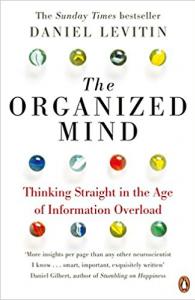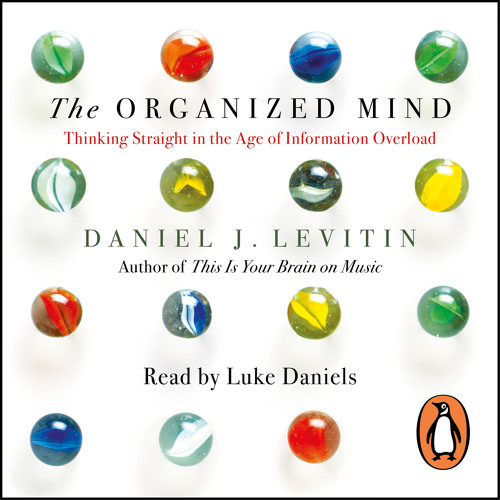

The human brain evolved to focus on a few inputs at a time. Back then we needed deep concentration just to survive.

Our genes haven’t changed much from when we were hunter-gatherers. If you want to save this summary for later, download the free PDF and read it whenever you want.ĭownload PDF Lesson 1: Our brains can do one thing at a time and find it hard to handle the present overload of information. Let’s see how you can build what the author calls “an organized mind that leads you effortlessly to good decision-making”!
If you want to work efficiently, use external devices for organizing, remembering, and focusing on a single task. Keep your physical environment clean and simple, and your mind will feel the same way. As a result of over 10,000 years of evolution, the human brain can’t deal well with today’s complexity. Here are 3 lessons about the mind from this book: Slowing down and focusing on what really matters, one thing at a time, are the keys to handle today’s speed. Give up getting as much information as you can and take a Zen approach instead! In The Organized Mind: Thinking Straight in the Age of Information Overload, cognitive psychologist and neuroscientist Daniel J. How can we keep up with so much information and complexity? In the meantime, thousands of words, images, and videos are uploaded and wait for us on the Internet. So every time we do groceries we have to ignore at least 39,850 items and struggle to find the ones we want. Now the average supermarket stocks 40,000 items, while we only need 150 to satisfy 80% of our needs. 
Today, we are doing ourselves the jobs once delegated to ten different specialists while also trying to keep up with our private lives. Thirty years ago, travel agents made our reservations, clerks helped us find what we’re looking for in stores, and typists helped us with writing and correspondence.

Listen to the audio of this summary with a free reading.fm account*:








 0 kommentar(er)
0 kommentar(er)
